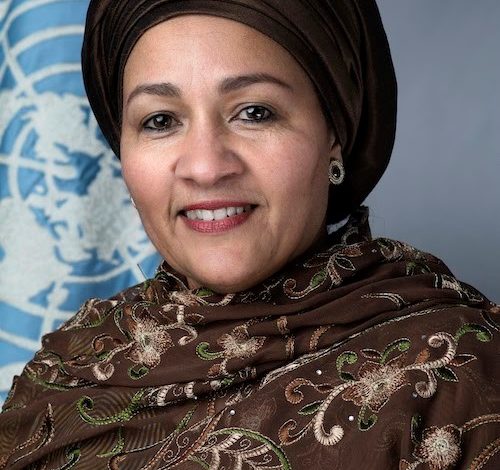Collective Efforts From Government, Community Leaders Essential In Fighting Gender-Based Violence – Amina Mohammed
Nigeria’s Amina Mohammed, the United Nations Deputy Secretary-General, believes ending gender-based violence against women needs a change of altitude and collective action.

Amina Mohammed, the United Nations Deputy Secretary-General, says the main solution to gender-based violence is a change of mindset, noting that the government alone cannot solve the problem.
“It is about our religious, traditional leaders and our mothers in communities coming together to preach against it,” Mohammed said in an interview with Aljazeera on Monday.
She stated that being a survivor of gender-based violence herself, a collective effort on the part of the government, stakeholders, changing social and cultural norms, and zero tolerance were essential.
“But that’s not to say that we shouldn’t have to have an enabling environment where there are implications when it happens,” she said, adding that there must be a law in place to deal with perpetrators of gender-based violence.
“For instance, a law put in place when a man perpetuates violence in his home, the man should be removed from the home instead of the woman leaving to look for sanctity somewhere else.”
The UN Deputy Secretary-General also called on governments to create an emergency response to gender-based violence in their respective countries across the world.
Issues such as femicide, early marriage, and violence against women are all matters which the UN has initiated conventions, programmes, and various tools to fight, she explained.
On whether the UN was doing enough in combatting violence against women, especially when it increased due to the effects of the COVID-19 over the past year, Mohammed said she felt the UN could do more to protect the rights of women, especially since the organisation highlighted that the pandemic had hindered the progression of women’s rights by 25 years.
“These are issues we are dealing with on a day to day basis. Is it happening fast enough and at the scale, it needs to? Absolutely not. We need to do more. This is why it was important for us to underscore the importance of International Women’s Day this year,” she added.
“I think the real focus on what we’re going to do now is to leapfrog the opportunities that COVID brings for the intergenerational transition and paying more attention to young people, especially young women.”
Support Our Journalism
There are millions of ordinary people affected by conflict in Africa whose stories are missing in the mainstream media. HumAngle is determined to tell those challenging and under-reported stories, hoping that the people impacted by these conflicts will find the safety and security they deserve.
To ensure that we continue to provide public service coverage, we have a small favour to ask you. We want you to be part of our journalistic endeavour by contributing a token to us.
Your donation will further promote a robust, free, and independent media.
Donate HereStay Closer To The Stories That Matter




